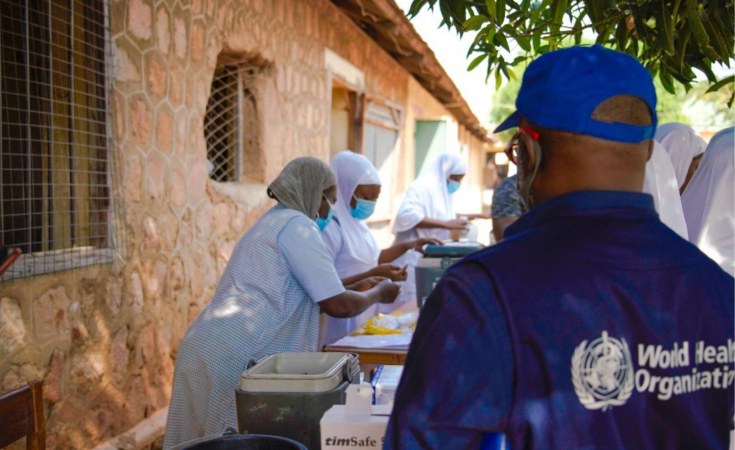Nigeria has become the first country to roll out a "revolutionary" five-in-one vaccine against meningitis, the World Health Organization (WHO) said in a statement on Friday.
The Men5CV vaccine offers a powerful shield against the five major strains of the meningococcal bacteria - A, C, W, Y and X - which cause the disease.
Known by the brand name MenFive, it provides broader protection than the vaccine currently used in much of Africa, which is only effective against the A strain.
Defeating a 'deadly foe'
"Meningitis is an old and deadly foe, but this new vaccine holds the potential to change the trajectory of the disease, preventing future outbreaks and saving many lives," said Tedros Adhanom Ghebreyesus, the WHO Director-General.
The rollout in Nigeria represents one step closer towards the goal of total elimination by 2030, he added.
Meningitis is the inflammation of the tissues surrounding the brain and spinal cord and can be fatal. Symptoms often include headache, fever and stiff neck.
There are multiple causes, including viral, bacterial, fungal and parasitic pathogens. The most serious - bacterial meningitis - can also result in blood poisoning and can seriously disable or kill within 24 hours after being contracted.
Vaccination campaign
Nigeria is among the 26 meningitis hyper-endemic countries of Africa, an area known as the African Meningitis Belt.
WHO said 153 people died in an outbreak in Nigeria between 1 October 2023 and 11 March of this year. A vaccination campaign was launched in late March to reach more than a million people aged 29 and under.
"Northern Nigeria, particularly the states of Jigawa, Bauchi and Yobe were badly hit by the deadly outbreak of meningitis, and this vaccine provides health workers with a new tool to both stop this outbreak but also put the country on a path to elimination," said Prof. Muhammad Ali Pate of the Nigerian Ministry of Health and Social Welfare.
WHO said the new vaccine has the potential to significantly reduce meningitis cases and advance progress in defeating the disease, which is especially important for countries like Nigeria where multiple serogroups are prevalent.


